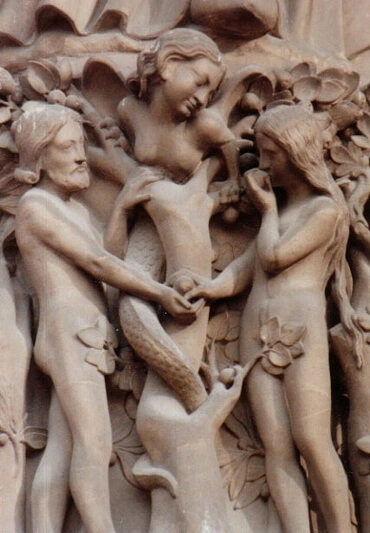Explanation of Genesis 3:6
By Brian David

Feeling life as their own (represented by the woman), the people of the Most Ancient Church felt an overwhelming desire to think from themselves about the nature of God ("good" and "food" both relate to desire, either for good or evil), and supported that desire with twisted logic ("pleasant" and "eyes" both relate to the intellect, either for good or evil). On top of that, the idea of being "wise," of potentially knowing what God knew, filled them with pleasure (it was "to be desired"). So they "ate the fruit"; they began exploring the nature of divinity, with an eye toward having divine knowledge themselves.
But there was hesitation. They still knew what they had been commanded, and the rational parts of their minds (represented by the "man," used here in a masculine sense) had to be pulled in. But they were; the "man" ate the fruit as well.
(References: Arcana Coelestia 207, 208, 209)
The New Jerusalem and its Heavenly Teachings #213
213. We can see from this that when we take the bread, which is the body, we are joined to the Lord through the goodness of love for him that comes from him; and that when we take the wine, which is the blood, we are joined to the Lord through the goodness of faith in him that comes from him.
It is important to know, however, that this being joined to the Lord through the sacrament of the Supper occurs only for people who are devoted to the goodness of love for the Lord and faith in the Lord that come from the Lord. For such people this joining together takes place through the Holy Supper; for others there is no joining together, but the Lord is nonetheless present with them.






